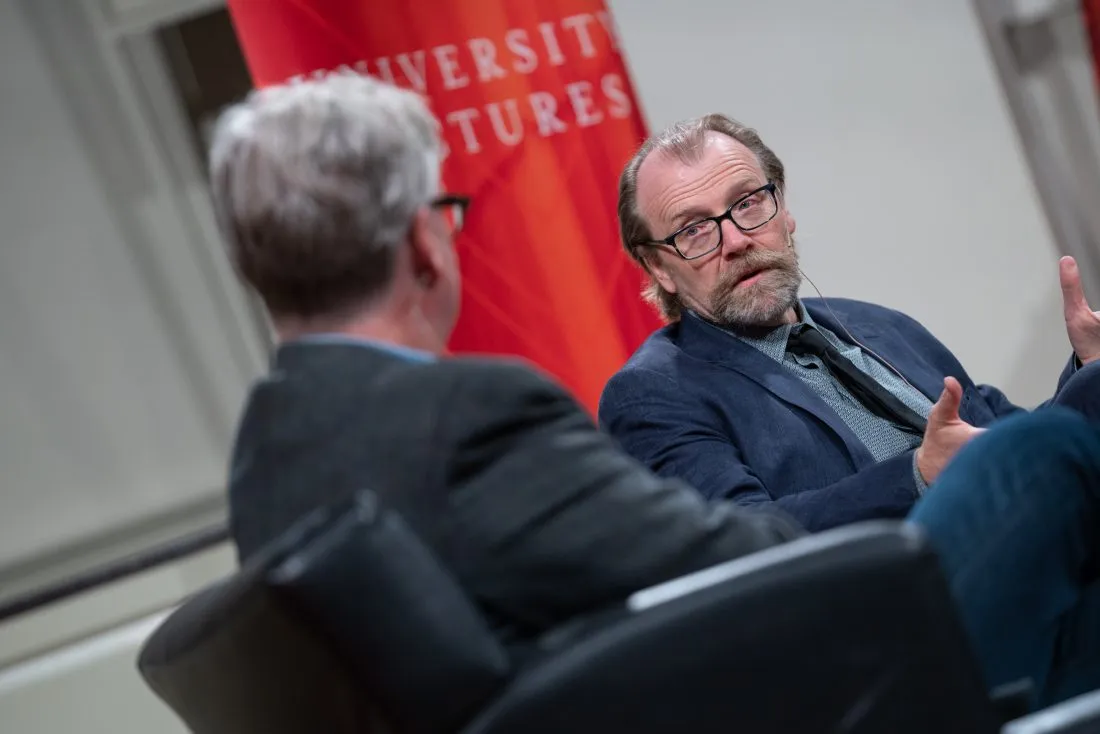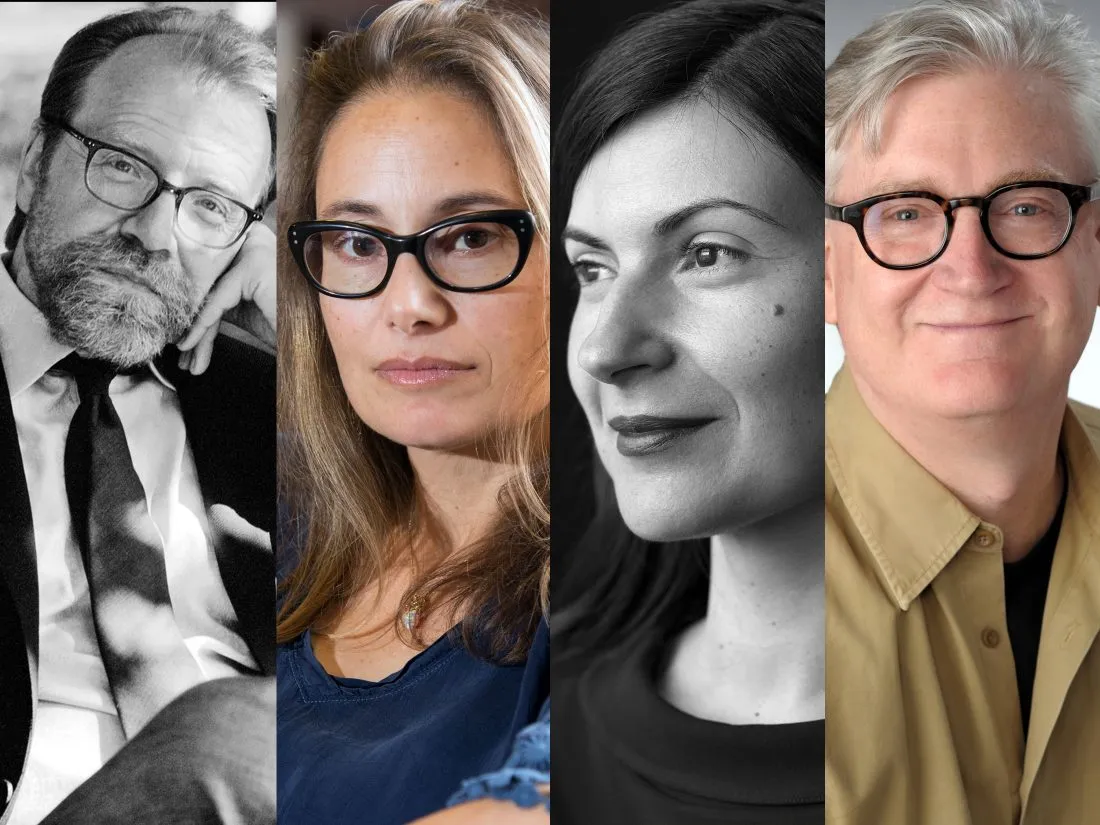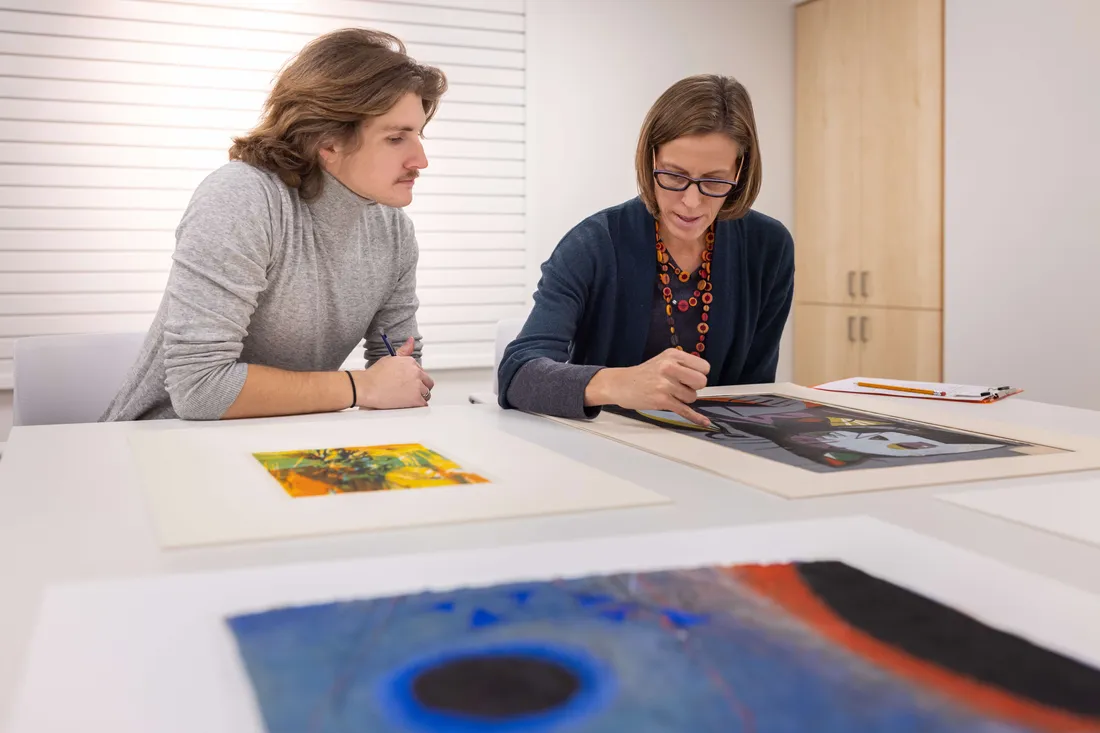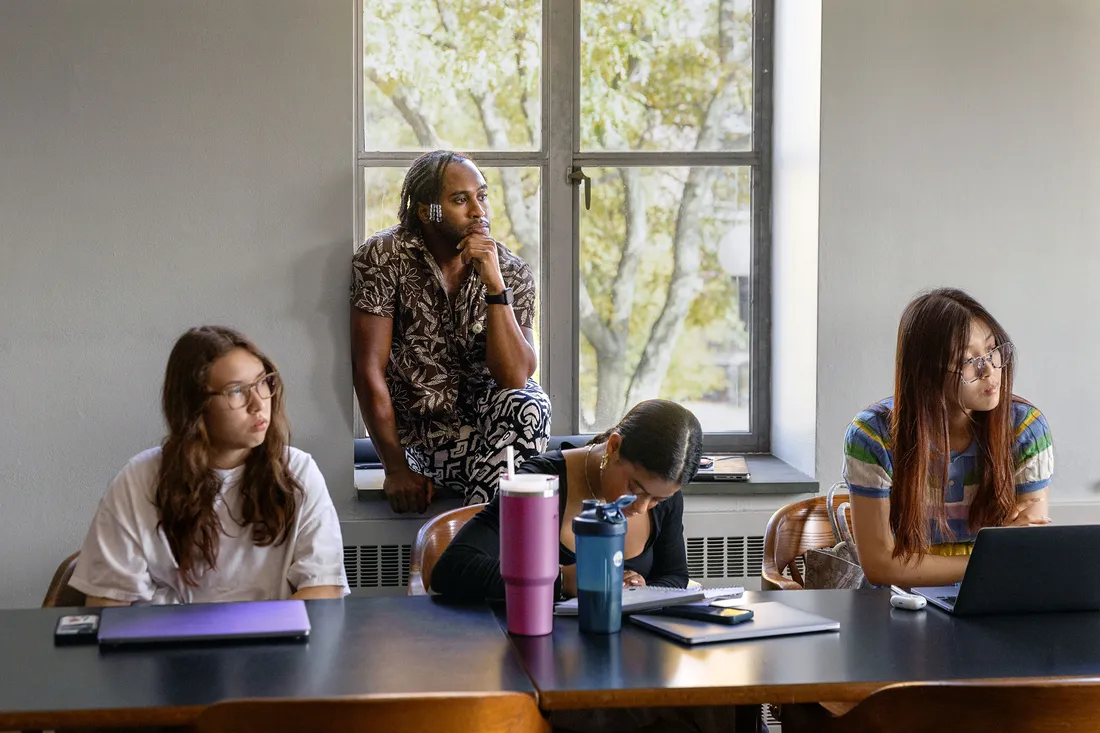
“This is a moment of incredible opportunity,” says Professor George Saunders G’88, citing the importance of literature in modern society.
There is an analogy in Buddhist philosophy that author George Saunders G’88 often quotes: The world is like a sleeping tiger, and we live on its back. Every so often, the tiger wakens, and we suffer. And grow.
“This a moment of incredible opportunity,” he says, reflecting on the hard-won lessons of recent national events. “It feels like a lot of old evils that we’ve been struggling with, for a long time, are erupting. They’re vital things to deal with, though difficult.”
An English professor in the College of Arts and Sciences , Saunders is part of a cohort of American writers whose work is taking on new significance during the COVID-19 pandemic. According to market research by The NPD group, his 2017 novel, Lincoln in the Bardo , has helped fuel a 23 percent spike in adult fiction sales since June.
We recently caught up with Saunders and some of his colleagues in the M.F.A. Program in Creative Writing —professors Mona Awad ( Bunny ), Jonathan Dee ( The Locals ) and Dana Spiotta ( Innocents and Others )—to discuss the role of fiction during times of crisis.

English professors George Saunders G’88, Dana Spiotta, Mona Awad and Jonathan Dee (from left).
Why do you think there's a spike in fiction sales?
Spiotta: Fiction creates an alternative and compelling imaginary space, offering a sustained, deep look at the world. It lingers in your mind and your heart.
This runs counter to the kind of media we are surrounded by. The thing is, you sometimes don’t realize what you are missing. Then you dive into a good novel, and you suddenly can breathe and think again.
Dee: Reading is the official leisure activity of the socially distant. It offers the chance to step outside one’s own experience, to see and appreciate the world in a way other than the fearful, angry, paranoid way we might be seeing it now.
Saunders: We all want to get back to normal, but there’s a little voice inside asking: “Well, what is normal? And why do we choose to live that way? That is, what is it we want so badly to get back to? What parts of ‘normal life’ are good, and what parts might we want to leave behind?”
I think fiction brings these sorts of questions into focus better than any other form of art.
How has the pandemic changed the way you think about fiction?
Awad: It reminds me just how important creativity is to my sanity. Writing and thinking about fiction allows for escape, distraction, dreaming—for the imagination to play. They are vital activities in times of collective uncertainty, pain and stress.
Fiction also allows me to creatively engage with navigating darkness and difficult experiences, to document those realities from different perspectives and to find a way through. In that way, it’s a means of empathy, empowerment and survival.
Saunders: I was finishing up a book on the Russian short story when the pandemic hit, so it became a good focus for all my free-floating anxiety. The project turned out to be a proof of concept of fiction’s power. Every day, I’d go deeply into one of the Russian stories I was writing about and would come out feeling … better , more convinced that the connection between people really is possible. Which made the rest of the day better and easier.
Dee: In one stroke, the stay-at-home order did away with about 95 percent of my go-to excuses for procrastination. The shutting-out of the real world you have to do, in order to sit at your desk and imagine a made-up story with made-up people in it, is a lot more challenging than usual.
Do you plan to write or revise anything reflecting a post-COVID world?
Saunders: Hard to say. I never know what I’m doing until I’ve done it.
It would be surprising if the epidemic, but, as importantly, the reaction to George Floyd’s murder, didn’t find a way in there. … Racism, a certain anti-science tendency, the old American “whistling-in-the-dark” mindset, our disregard of poor and working people, our habitual exceptionalism—all of these things are fresh boils on the national body.
Dee: A novel, even of the most “realistic” sort, is its own ecosystem. I think it’s a mistake to tie it too closely to current events of any kind.
Some great COVID-19 novels have already been written, such as Daniel Defoe’s A Journal of the Plague Year or Ling Ma’s Severance . We just haven’t read them that way until now.
Spiotta: I have a novel coming out in 2021 from Knopf called Wayward . It takes place in 2017—pre-pandemic but in the Trump era.
Awad: I just wrote a short story for The New York Times , set during the pandemic. It’s about a woman who gets an anti-aging cosmetic treatment that gives her amnesia. When she goes happily back out into the world, she finds it inexplicably and darkly changed.
I’m revising a new novel coming out next year called All’s Well . Among other things, it explores illness and the transfer of pain. It’s not explicitly about COVID, but the current moment is informing my revision.
What can the pandemic teach us about ourselves?
Dee: It can teach us to be humble by giving us a hard lesson in our own vulnerability. It also can teach us the power of collective action in an era where everyone seems overly concerned with personal autonomy.
Saunders: You know that moment when you’re swimming in a choppy ocean and suddenly things go quiet? In that instant, you’re suddenly aware that you’ve been swimming. That’s what I feel these days.
I seem to be getting a clear look at “Me, At Rest.” What, in a vacuum, are my tendencies and urges and needs? What do I want to do when there’s not much to do? Where do I long to go when I can’t go anywhere?
Awad: It teaches you what you value most, what you love most in the world and what you would hate to lose.
What are you reading these days?
Spiotta: A Burning , by Megha Majumdar.
Dee: Secondhand Time: The Last of the Soviets , by Svetlana Alexievich, an amazing oral history of the fall of the Soviet Union and its Russian aftermath.
Saunders: Eugene Onegin , by Pushkin, and an absolutely beautiful interview on art and comedy with Charlie Chaplin in the Criterion Collection release of the 1931 film City Lights .
Awad: I’ve just finished The Memory Police , by Yoko Ogawa, and it was one of the most wonderful works of fiction I’ve read in a long time. Though it’s a fable in some ways, it’s also a dystopia that cuts close to home, dealing with collective forgetting and totalitarian regimes. It’s really heartbreaking but also incredibly beautiful and strangely hopeful.


